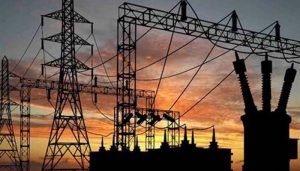GUJARAT
- Ahmedabad becomes India’s first World Heritage City.
- The Walled City of Ahmedabad, founded by Sultan Ahmed Shah in the 15th century, has been declared India’s first World Heritage City.
- The World Heritage Committee (WHC) of UNESCO made the announcement
- The 5.5 km walled city area with an approximate population of four lakh, living in century old wooden residences in around 600 pols or neighbourhoods, is regarded as a living heritage. The UNESCO had preferred Ahmedabad over Delhi and Mumbai. It has now joined the privileged club of heritage cities like Paris, Cairo, Edinburg and two cities in the subcontinent, Bhaktpur in Nepal and Galle in Sri Lanka.
INTERNATIONAL
- Iraq PM announces ‘victory’ over Islamic State.
- Iraq’s prime minister celebrated with troops on Sunday after they drove Islamic State militants from some of their last strongholds in Mosul.
- Iraq PM Haider al-Abadi arrived in Mosul to declare victory over IS in the more than eight-month old operation to drive the militants out.
- The militants captured Mosul, Iraq’s second largest city, in a matter of days in the summer of 2014.
- IS still hold several smaller towns and villages across Iraq and Syria.
NATIONAL
- Now, sex selection in cows to get fewer male calves
- The Union government has asked 10 animal husbandry centres to establish sexed semen production facilities to boost milk productivity and tackle the problem of “unwanted male calves” arising from the cow slaughter ban.
- Sexing technologies allow farmers to control the gender of the calf. Scientists believe the use of sexed semen will result in the birth of nine females to every male, thereby helping farmers who prefer milk-producing cows to bulls.
- Bulls have become a burden on farmers because growing mechanisation in agriculture has made them near-redundant in the fields.
- The environment ministry’s recent rules banning the sale of cattle for slaughter at cattle markets have only aggravated the problem.
- India is the largest milk producer in the world. Its total milk production was 155.5 million tonnes in 2015-16, divided almost evenly among buffaloes and cows. However, the demand for milk is expected to cross 200 million tonnes by 2021-22.
- At present, this technology is used only by a few rich farmers who can afford to purchase the doses from foreign companies. These doses come from males of foreign breeds. Opening labs in India will mean producing the doses in India with indigenous bull and buffalo semen.
- India’s first university only for Dalit students to come up in Hyderabad by 2018.
- If the Telangana government has its way, Dalit students who wish to pursue their post-graduation in the state will have an exclusive university for them by next academic year.
- A proposal to establish an exclusive university for Dalit students in Hyderabad is under active consideration of the state government
- The university is said to be part of the government’s policy of providing education free of cost to students from weaker sections from kindergarten to post-graduation (KG to PG) level.
- At present, there are universities exclusively for women and religious minorities but not for weaker sections, though they are given reservations in various state-run universities.
- States issue Rs 2.32 lakh cr bonds under UDAY
- States have issued bonds worth Rs 2.32 lakh crore under the UDAY scheme meant for revival of discoms.
- The power ministry had launched UDAY scheme for revival of the debt ridden power distribution utilities in November, 2015.
- As per the scheme, total liability opted for restructuring by the states through issuance of bonds was Rs 2.69 lakh crore, covering 15 states.
- States have issued bonds worth Rs 2.32 lakh crore covering 86 per cent of the debt (to be taken over by them) so far under UDAY scheme, a latest review of power ministry stated.
- As on September 30, 2015, total debt of all state owned DISCOMs was Rs 3.95 lakh crore. The 26 states and 1 UT which have joined the UDAY scheme account for total outstanding debt of Rs 3.82 lakh crore. Thus as much as 97 per cent of the total outstanding debt of all state DISCOMs has been covered under the UDAY.
- Under the scheme, states were required to take over 75 per cent of discoms debt and issue bonds for writing off those loans. The discoms are required to pay remaining 25 per cent of the debt by issuing bonds.
Gk byte – Uday scheme
- UDAY Ujjwal Discom Assurance Yojana provides for the financial turnaround and revival of Power Distribution companies (DISCOMs), and importantly also ensures a sustainable permanent solutionto the problem. It has ambitious target of making all discoms profitable by 2018-19.
It has all the 3 elements —
- Clear up the legacy issuesof past losses and debt.
- Provide a financial road mapto bring tariffs in line with costs by FY19.
- Provide enough deterrentsfor the state govt to not allow the state discoms to become loss ridden post FY18, as losses start to impact their FRBM limits.
- The State govt. will takeover thediscom liabilities over 2-5 year period.
- This will allow discoms to convert their debt into State bond. These bonds will have a maturity period of 10-15 years.
- It will allow transfer of 75% outstanding debtsincurred by stressed discoms to States’ debt, 50% in 2015-16 and 25% in 2016-17.
- The central government will not include the loans of the discoms in calculation of the state’s deficittill 2016-17.
- Electricity is not a central subject, states’ cannot be made to participate in the programme.
- GPSC Mains 2025 Tests and Notes Program
- GPSC Prelims Exam 2025- Test Series and Notes Program
- GPSC Prelims and Mains 2025 Tests Series and Notes Program
- GPSC Detailed Complete Prelims Notes

